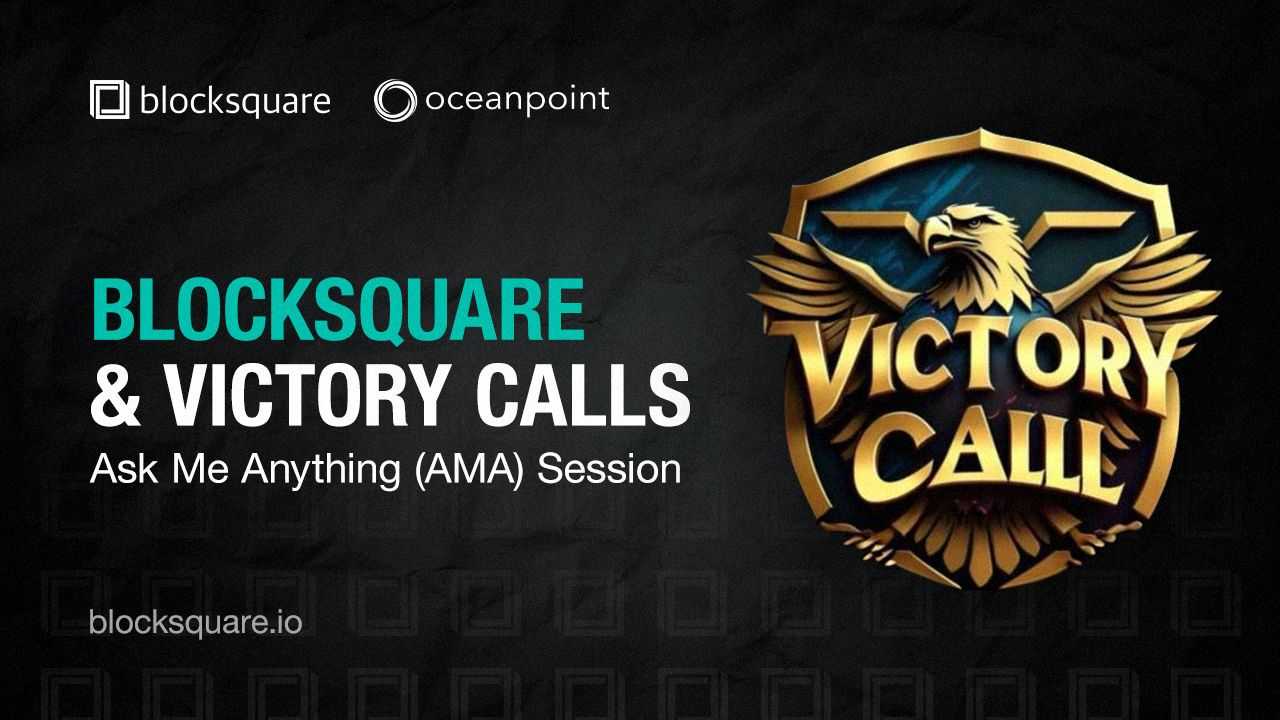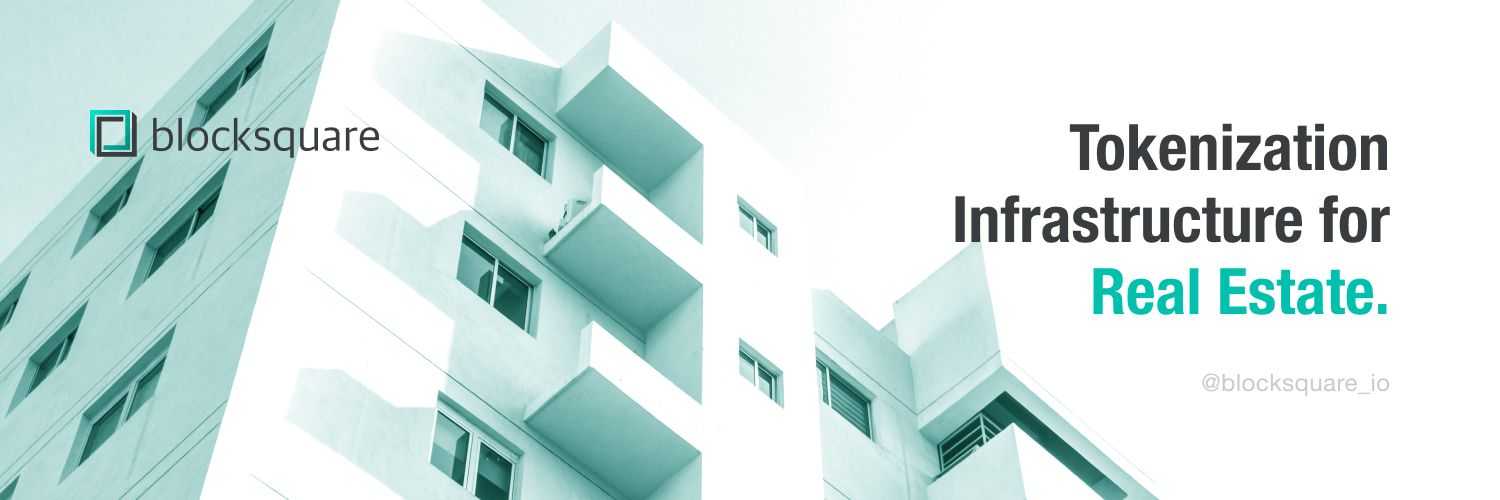How Blocksquare Brings Real Estate to the Blockchain: Victory Call AMA with CEO Denis Petrovcic on Tokenization, DeFi, and New Market Opportunities
The crypto space is evolving rapidly, with growing interest in Decentralized Finance (DeFi), tokenized real-world assets (RWAs), and platforms promoting accessible investments. In a recent AMA with the Victory Call community, Blocksquare CEO Denis Petrovcic discussed how his team is revolutionizing real estate tokenization—making property investments simple and tradeable through blockchain. With a focus on legal security, fiat integration, and community-driven projects, Blocksquare aims to reshape the real estate market, fostering inclusivity and liquidity for all types of investors.


Dive into this discussion to explore the intersections of real estate and blockchain, the importance of liquidity, and how DeFi innovations are reshaping traditional investments.
AMA Recap with Denis Petrovcic, CEO of Blocksquare, at Victory Calls Community
Host: We’re excited to have Denis Petrovcic, the CEO of Blocksquare, joining us today. Denis will walk us through the vision behind Blocksquare, real estate tokenization, and the impact they’re making in the crypto and property space. Let’s get started!
Q1: Denis, tell us about your background. How did you get started with crypto, and what led you to create Blocksquare?
Denis: Thanks for having me here! My crypto journey began in 2016, though I had come across Bitcoin earlier, but the timing wasn’t right. I was looking for my next entrepreneurial venture, and the potential of blockchain technology intrigued me. In 2018, we officially launched Blocksquare with a vision to tokenize real estate assets. At that time, the concept of Real-World Assets (RWA) on blockchain was in its infancy.
We identified a problem: real estate investments were inaccessible to most people due to high barriers to entry and a lack of liquidity. Our solution was to create a platform that could legally transfer the value of real estate assets to blockchain tokens, making these investments more accessible and tradable. This is what Blocksquare is built to achieve: lowering the barriers to real estate investment and creating liquidity in traditionally illiquid markets.
Q2: What exactly is Blocksquare, and how does it benefit real estate investors and marketplace operators?
Denis: Blocksquare is the infrastructure that powers tokenized real estate. We provide companies the tools to create and operate their own real estate marketplaces under their own brand. Think of us as the "Shopify for tokenized real estate."
Our platform connects real estate owners, marketplace operators, and investors. Marketplace operators can list tokenized properties on their platforms, allowing investors to browse, buy, and trade these tokens, just like on a cryptocurrency exchange. After completing a KYC process, users are approved to invest in tokenized properties and earn revenue generated by those assets.
The system is designed to unlock real estate as an asset class, which has historically been exclusive and fragmented. Investors can diversify their portfolios with properties across different regions—buying a fraction of a luxury apartment in Spain or commercial real estate in Berlin. These tokenized properties can also be traded on secondary markets, bringing liquidity that’s been missing in real estate for a long time.
Q3: What partnerships has Blocksquare formed to expand its ecosystem?
Denis: Partnerships are vital for us. One recent example is our collaboration with Polytrade, which allows real estate assets tokenized through Blocksquare to become part of Polytrade’s ecosystem. This partnership brings more visibility and liquidity for marketplace operators working with us.
On the legal side, we’ve partnered with CMS Law, one of Europe’s largest law firms, to develop a notarization process for tokenized real estate. This will provide stronger investor protection by ensuring the tokenization of real estate assets is legally secured. In addition to these, we collaborate with marketing partners and other companies to provide educational content and grow awareness around RWAs.
Q4: How does Blocksquare address the challenge of liquidity in tokenized real estate?
Denis: We’ve developed Oceanpoint, a liquidity engine designed to bring liquidity to tokenized assets. Currently in version 0.5, Oceanpoint allows users to trade their tokens both peer-to-peer (P2P) and with the protocol itself. This means that instead of relying solely on buyers and sellers within a marketplace, investors will eventually be able to trade directly with the protocol, creating an instant buy-and-sell option similar to Uniswap.
The difference is that we operate within a compliant framework—our transactions require KYC to prevent issues that arise in decentralized finance (DeFi) pools, such as anonymous trading. Once Oceanpoint reaches version 1.0, it will make it easier for investors to liquidate tokenized assets quickly while ensuring compliance with real estate regulations.
Q5: What are the security measures for protecting tokenized real estate investments?
Denis: Security is multi-layered at Blocksquare. First, we work with Hacken to audit our smart contracts, ensuring the technical infrastructure is robust. On the legal side, we’re working with CMS Law to implement a notarization process that ties real estate tokens to the property’s title. This provides investors with the same protection banks receive when issuing mortgages.
Here’s how it works: through notarization, the token holder’s claim is registered in the land registry of an EU member state. In case of a default or issue with the property owner, token holders are legally protected—just as a bank would be when it holds a mortgage on a property.
This notarization process prevents scenarios like double-spending, where a property owner could sell the property without informing token holders. With our system, the property title is tied to the tokens, and owners cannot transfer the asset without first buying back the issued tokens.
Q6: Are there plans to incorporate fiat payment options on Blocksquare’s platform?
Denis: Yes! Fiat gateways are essential for making tokenized real estate accessible to more people. Currently, we allow users to generate invoices and make bank transfers for larger transactions. However, we are actively working on integrating card payment options.
One challenge is that some fiat payment processors are hesitant to support projects involving tokenized assets due to potential securities regulations. But we are collaborating with CMS Law to address these concerns and build solutions that ensure both compliance and ease of access.
Q7: How does Blocksquare engage with its community?
Denis: Community engagement is at the heart of everything we do. We organize trivia, games, and Q&As on Discord to keep our community involved. This summer, we also launched the RWA Launchpad, which allows marketplace operators to raise support from our community of BST token holders. If they meet the required support, they gain access to our technology with minimal costs, and the community earns additional rewards for their participation.
We’ve also introduced regional hubs, where community members can become ambassadors and run local events with support from Blocksquare. These hubs are designed to educate the market and spread awareness about the potential of tokenized real estate.
Q8: What impact could tokenization have on underserved markets, such as Africa?
Denis: This is an important topic. Real estate is one of the world’s largest asset classes, but 80% of investments are concentrated in just 60 cities worldwide—places like New York, London, and Tokyo. That leaves vast regions with limited access to global capital.
With tokenization, we can open up real estate investments in underfunded markets. For example, an investor in London could easily buy a stake in a commercial building in Africa. This creates new financial opportunities for regions that have been excluded from traditional real estate finance.
While we can’t solve internet access challenges directly, tokenization offers a way to bring more liquidity to these underserved markets, attracting capital that was previously out of reach.
Closing Thoughts
Host: Thank you, Denis, for this enlightening discussion. Do you have any final words for the community?
Denis: It’s been a pleasure! Blocksquare’s goal is to empower people to access real estate investments anywhere in the world. We invite anyone interested to join our community, explore the regional hubs, and help us grow the ecosystem. Real estate tokenization is a game-changer, and we’re excited to see where this journey takes us!
This detailed AMA with Blocksquare's CEO Denis Petrovcic on Victory Call highlighted the potential of real estate tokenization, the innovative solutions Blocksquare offers, and the importance of community involvement. If you’re passionate about bridging traditional real estate with blockchain, Blocksquare offers a world of opportunities to explore. Stay connected for future developments!
